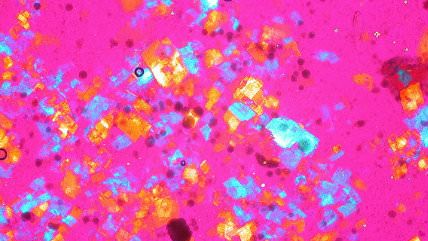Feds May Finally Ditch Cholesterol Warning
Eggs for everybody!


After years of telling Americans that high-cholesterol foods would kill them, the federal government may ease up on warnings about this much-maligned nutrient. The U.S. Dietary Guidelines Advisory Committee will no longer list cholesterol among its "nutrients of concern," according to The Washington Post.
The committee is in the midst of updating federal dietary guidelines for 2015; the last update was in 2010. These guidelines are used to set school lunch standards and food labeling requirements and inform all sorts of government dietary advice.
The move reflects updated scientific thinking on cholesterol. While high cholesterol levels in the blood can still be a bad health indicator, scientists no longer view high blood cholesterol as a direct result of eating a cholesterol-rich diet, at least not for most people. Genetics may make some individuals more vulnerable to cholesterol in food, but scientists estimate this group only includes about 25 percent of the population.
Cholesterol is the latest in a long line of dietary demons pursued vigorosly by public-health officials only to be redeemed as nutrition science advances. One of the reasons trans fats found their way into large parts of the U.S. food supply was the government's campaign against products made with lard, prompting foodmakers to instead switch to partially-hydrogenated vegetable oils. These oils turned out to be high in the types of trans fats we now know are more dangerous than animal fats. The government also urged individuals to stop cooking with animal fats and instead use vegetable oils such as corn and soybean oil—both loaded with inflammation-spiking omega-6 fatty acids, which have been much more detrimental to American health than eating butter.
Government guidelines for optimal eating may have similarly screwed Americans over when it comes to fats in general. For years, health officials championed low-fat (and low-cholesterol) diets as optimal, pushing many to try and avoid fat in food as much as possible. But there are tons of different kinds of dietary fats, and a lot of them—particularly polyunsaturated fats of the variety found in fish, nuts, and grass-fed beef—are not just okay but incredibly beneficial for human health. Dietary fat is also necessary to help humans absorb other important nutrients, so a vegetable-filled, vitamin-rich salad actually becomes more nutritious if you add a little olive oil or egg.
Even the story behind saturated fat, characterized for decades as having no redeeming nutritional value, is a lot more complicated than scientists previously thought. A new study published in the journal Open Heart concluded that U.S. and U.K. dietary guidelines condemning saturated fat "should not have been introduced." Research has shown some types of saturated fatty acids are terrible for human health, while others are neutral or even good. As dietary science advances, more and more of this sort of nutritional nuance become apparent, making one-size-fits-all advice of the kind supplied by federal dietary guidelines seem all the more outdated.
